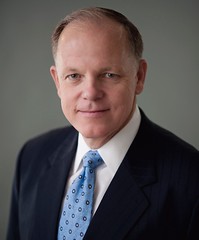By Tobin Perry
Bay St. Louis, Miss. – Serving Hurricane Katrina survivors in Bay St. Louis, Miss., nearly a decade ago through Southern Baptist Disaster Relief, Glenn Stringham met for the first time the father of one of the men who had been under his command three decades earlier during the Vietnam War.
“Thank you, Captain Stringham, for bringing my son home from Vietnam,” the 95-year-old man told Stringham.
“That’s nice of you to say that to me,” Stringham told the father. “But that’s not how it works. I was a commander. It was your son, one of my soldiers, who kept me alive during Vietnam.”
In the four decades since the end of the Vietnam War, those simple expressions of gratitude have occurred too infrequently. On June 16, during this summer’s Southern Baptist Convention (SBC) in Columbus, Ohio, Southern Baptists will say thank you to the nearly 9 million Americans—including an estimated 1 million Southern Baptists—who served in the military during the Vietnam War.
This summer’s commemoration at the SBC coincides with a national effort, signed into law by President Barack Obama in 2012, to honor Vietnam veterans during the 50th anniversary of key events during the war, culminating in 2025 with the 50th anniversary of its official end. The national commemoration effort hopes to involve community groups throughout the country, including churches, in honoring the service of Vietnam veterans.
“Although these heroes made great sacrifices to keep us free and secure as a democratic nation, many of them came back home to an environment of hostility and disrespect shown towards the long war and even the members of the Armed Services,” said Doug Carver, the executive director of chaplaincy at the North American Mission Board. “Too many of our Vietnam veterans returned home from their combat tour and were greeted by the anti-war expressions of jeers, mockery and boos hurled at them from their fellow Americans. Some were even spat upon. And so, for the first time in American history, these veterans quickly put away their uniforms because of the unpopularity of the war. The nation never formally welcomed our Vietnam veterans home with a heroes’ parade like we do today. We never did something so important for anyone who is willing to lay down their lives for others—that’s simply to say, ‘Thanks and welcome home.’”
Carver and SBC President Ronnie Floyd will lead this summer’s convention commemoration.
Stringham, who served as a bi-vocational SBC pastor after retiring from the Army, says that he didn’t face much of the disrespect that other veterans faced because he continued to serve long after the war, but many of the men in his command did. Still the Vietnam War is something he and his fellow veterans rarely discuss with others.
| “There wasn’t any kind of fanfare. It was just like, ‘Okay, you’re home. You did it.’” — Glenn Stringham, describing the welcome he received upon returning to the United States after serving in the Vietnam War. |
“It was like, ‘You’re home.’ There wasn’t any kind of fanfare—except with family—but there wasn’t any kind of, ‘Hey, we’re glad you’re home, thank you for serving,’” said Stringham, who as a 24-year-old in the Army led nearly 200 men during his year serving in the Vietnam theater. “It was just like, ‘Okay, you’re home. You did it.’”
Former SBC President Bobby Welch, a decorated Vietnam veteran himself, believes it’s important for Southern Baptists to honor Vietnam War veterans for their service. Welch recommitted his life to Christ after nearly dying when shot by a Viet Cong soldier as he served in the war.
“Anytime a person gives their best to help us in any way, such an action has earned and deserves a heartfelt ‘thank you!’” said Welch, who currently serves as the associate executive director of the Tennessee Baptist Convention. “Everyone agrees that is certainly true for the fireman, the policeman, the ambulance driver and workers. How much more is that true for military personnel who risk their lives, family, future and more to protect not only us personally but our country’s future? Regardless of political maneuvers in America or globally, all veterans of Vietnam are worthy of a sincere thank you.”
Carver encourages churches that want to honor Vietnam veterans to do so in both public and small-group gatherings. Allowing veterans to share their stories—both in worship services and possibly in support-group settings—will not only educate younger generations on the sacrifices made by veterans but will contribute to the healing process as well.
“Many of our Vietnam veterans have never shared their personal stories and combat experiences, especially those who sit in our church pews,” Carver said. “Because no one was interested in hearing their stories and the war was so unpopular, they basically closed that painful foot locker of their lives—and never re-opened it.”
Welch reminds churches not to forget about the families who were left behind when American troops went to Vietnam.
“Remind [your congregation] that those who stayed home also gave up a lot. Some never saw their loved ones return home,” Welch said. “As they look around, remind them how much and how many it takes to have a free country.”
For more information about the U.S. Department of Defense’s Vietnam Veterans Commemoration Program, visit vietnamwar50th.com.
Tobin Perry writes for the North American Mission Board.
Editor’s note: The estimation of Vietnam veterans who were Southern Baptists is based on the statistics showing that Southern Baptists generally make up 18 percent of the Armed Services.
Published June 1, 2015
